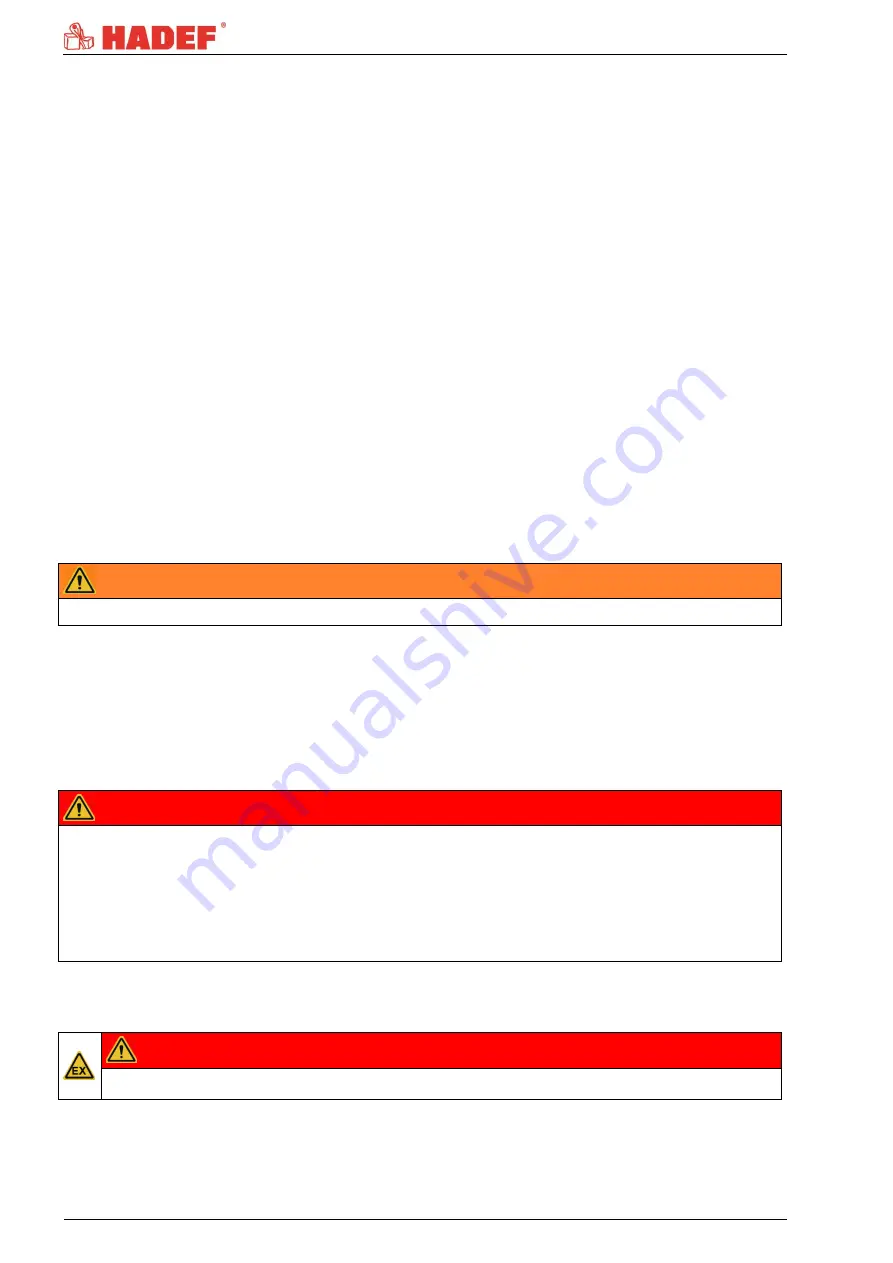
4
5.52.624.01.01.00
Our delivery includes the hoist supplied beginning at its suspension and ending at the load hook and if
supplied with control, the control line/hose that leads to the hoist. Further operating material, tools, load
attaching devices as well as main energy supply lines must be assembled according to the valid rules and
regulations. For explosion-proof equipment, all these parts must be approved for use in area prone to
explosion, or they must be suitable for use in area prone to explosion. The owner is responsible for this.
However, in everyday operation this degree of safety can only be achieved if all measures required are
taken. It falls within the duty of care of the owner/user of the devices to plan these measures and to check
that they are being complied with.
Complete the operating and installation instructions by any instructions (regarding supervision or
notifications)that are important for the special kind of use of the equipment, i.e. regarding organization of
work, work flow and human resources.
In particular, the owner/user must ensure that:
The unit is only used appropriately.
The device is only operated in a fault-free, fully functional condition, and the safety components, in
particular, are checked regularly to ensure that it is functioning properly.
The required personal protective equipment for the operators, service and repair personnel is available
and is used.
The operating instructions are always available at the location where the equipment is used and that they
are legible and complete.
The unit is only operated, serviced and repaired by qualified and authorized personnel.
This personnel is regularly trained in all applicable matters regarding safety at work and environmental
protection, and that they are familiar with the operating manual and, in particular, the safety instructions it
contains.
Any safety and warning signs on the devices are not removed and remain legible.
customers equipment at site must comply with currently applicable ATEX-regulations
WARNING!
It is not allowed to make constructive changes of the equipment!
2.3
Requirements for the operating personnel
The units may only be operated by qualified persons that are appropriately trained and that are familiar with
it. They must have their employer’s authorization for operation of the units.
Before starting work, the operating personnel must have read the operating and installation instructions,
especially the chapter "Safety Instructions".
This is especially important for operating personnel that rarely uses the equipment, i.e. for installation or
maintenance work.
DANGER!
In order to avoid severe injury, please pay attention to the following when using the equipment:
Use protective clothes/equipment.
Do not wear long hair hanging down open.
Do not wear rings or other jewelry.
Do not wear clothes that are too big/wide.
Do not reach into ropes, chains, drive parts or other moving parts with your hands
2.4
Appropriate use
Devices are intended for deflecting a wire rope in all directions.
DANGER!
The maximum permissible rope speed is 40m/min!
The permitted safe working load of the devices must not be exceeded! An exception can be made during the
load test before initial operation, carried out by a licensed qualified person.
Defective devices and load suspension devices must not be used until they have been repaired! Only
original spare parts must be used. Non-compliance will result in any warranty claims becoming void.
Liability and warranty will become void if unauthorized modifications of the units are made by the user!























